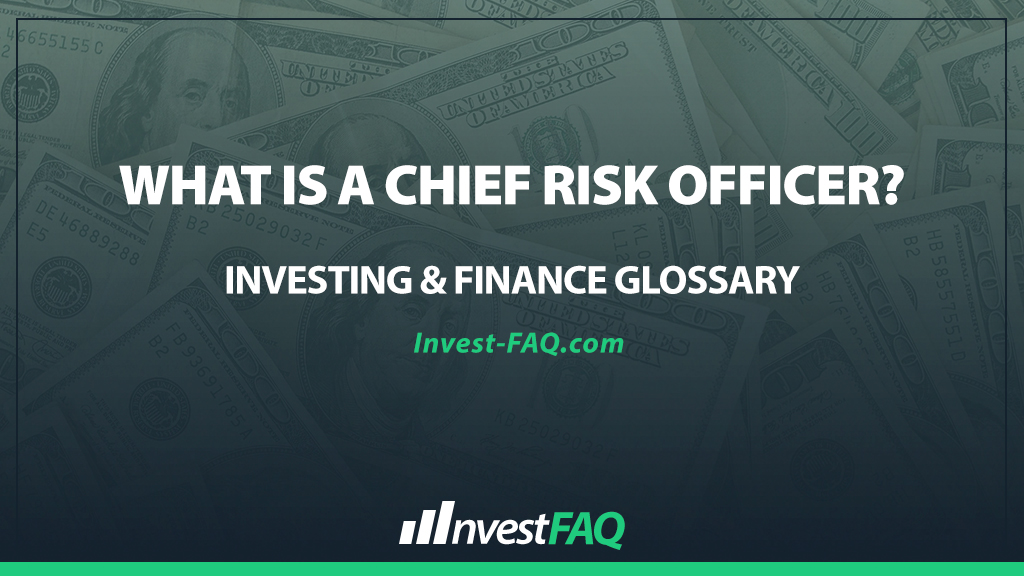
Chief Risk Officer
Contents
A Chief Risk Officer (CRO) is a corporate executive responsible for identifying, analyzing, and mitigating internal and external risks that could threaten the organization. The CRO’s role encompasses overseeing the company’s comprehensive risk management strategy to ensure its long-term resilience and sustainability.
In the modern business environment, characterized by rapid changes and uncertainties, the CRO plays a pivotal role in safeguarding the organization against financial, operational, regulatory, and reputational risks.
They work closely with other senior executives to integrate risk management into strategic planning and decision-making processes, ensuring that potential risks are identified early and managed proactively.
Example of a Chief Risk Officer
Imagine “Global Finance Corp.,” a multinational banking institution, faces risks ranging from credit and market risks to cybersecurity threats. The CRO, in this scenario, leads the development of a comprehensive risk management framework that includes:
Credit Risk Assessment: Implementing advanced analytics to assess the creditworthiness of borrowers and set appropriate lending limits.
Market Risk Analysis: Using financial models to evaluate how changes in market conditions could impact the institution’s investment portfolio.
Cybersecurity Measures: Establishing robust cybersecurity protocols and regular audits to protect against data breaches and fraud.
In “Global Finance Corp.,” the CRO’s initiatives directly influence the organization’s risk posture and operational strategy.
By assessing credit risks, the CRO ensures that lending practices are aligned with the institution’s risk appetite, minimizing potential defaults and financial losses. The analysis of market risks enables informed investment decisions, protecting the company’s assets from volatile market movements.
Implementing strong cybersecurity measures safeguards the company’s data and financial assets, maintaining customer trust and regulatory compliance.
Significance for Investing & Finance
The role of the CRO is increasingly recognized as critical within the strategic framework of organizations for several reasons:
Strategic Risk Management: The CRO ensures that risk management is embedded in the strategic planning process, aligning risk appetite with business goals.
Financial Stability: Through proactive risk assessment and management, the CRO contributes to the financial stability and sustainability of the organization, protecting assets and earnings.
Regulatory Compliance: The CRO plays a crucial role in ensuring compliance with relevant laws and regulations, thereby avoiding fines, sanctions, and reputational damage.
Stakeholder Confidence: Effective risk management strategies led by the CRO enhance confidence among investors, regulators, and customers, critical for the organization’s reputation and long-term success.
In summary, the Chief Risk Officer is fundamental to modern business strategy, offering leadership in navigating the complex landscape of risks facing organizations today.
By identifying, assessing, and mitigating risks, the CRO supports the organization’s objectives, promotes sustainable growth, and ensures regulatory compliance, solidifying the role’s importance in the accounting and financial sectors.
FAQ
What is the primary focus of a Chief Risk Officer (CRO) in a company?
The primary focus of a CRO is to identify, assess, and mitigate various types of risks (financial, operational, compliance, and reputational) that could impact the company, ensuring the organization’s resilience and sustainability.
How does a CRO contribute to the strategic planning of an organization?
A CRO contributes to strategic planning by integrating risk management perspectives into decision-making processes, helping to align the company’s risk appetite with its strategic goals and ensuring informed risk-taking.
What qualifications are typically required for someone to become a Chief Risk Officer?
To become a CRO, an individual usually needs extensive experience in risk management, a strong background in finance or business administration, and often advanced qualifications such as a Master’s degree in risk management or related certifications.
How does the role of a CRO differ across industries?
The role of a CRO can vary significantly across industries due to differing regulatory environments, risk profiles, and operational complexities, requiring industry-specific knowledge and expertise to effectively manage unique risks.
